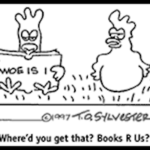American Muckrakers PAC, Inc. v. Boebert (D. Colo. June 9, 2024) (recently posted on Westlaw) originated from allegations made by the PAC and journalist David Wheeler against Rep. Lauren Boebert. Rep. Boebert denied the allegations, threatened to sue Wheeler (which she did), and also made statements to the media threatening donors to Plaintiff American Muckrakers PAC, Inc., indicating that their actions could lead to legal consequences.
The PAC and Wheeler filed a lawsuit for various torts, including defamation (based on Boebert’s accusations of lying) and interference with contract and prospective advantage. Magistrate Judge Kathryn Starnella recommended dismissing the defamation claims under Colorado anti-SLAPP statutes due to insufficient evidence of Boebert’s knowledge of the falsehood of her claims. For more details, refer to the opinion.
However, the Magistrate Judge suggested allowing the tortious interference claim concerning threats of litigation against donors to proceed, stating:
The balancing of conflicting interests between the parties in this case shows that Plaintiffs’ donors and sponsors have a significant First Amendment interest in supporting political speech without fear of reprisal, while Defendant, as an elected official, has a platform to protect her reputation. The Court finds that silencing speech through threats of litigation is not in the public interest.
Considering the temporal proximity between Defendant’s comments and decreased donations, the Court concludes that Defendant’s actions directly impacted the interference.
Furthermore, the relations between the parties favor a finding of impropriety, given Defendant’s position of power and Plaintiffs’ reliance on donor support for their work in public interest reporting.
Ultimately, the Court believes Plaintiffs have shown a reasonable likelihood of proving that Defendant’s threats against donors were improper.
Following the report, the parties reached a settlement, and the case was resolved.
As per the Restatement, threats of litigation are wrongful if made without belief in the merit of the case or in bad faith to harass third parties.
While lawsuits against major donors supporting defamatory activities may be considered, the tort requires substantial assistance, which was lacking in this instance.






